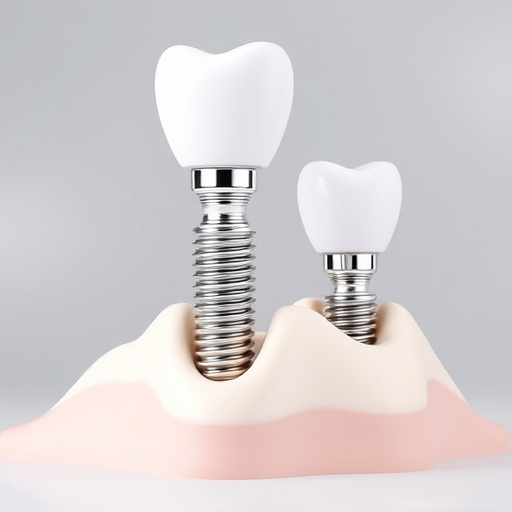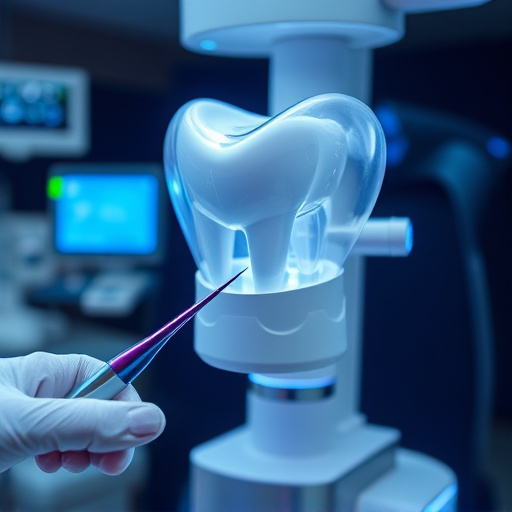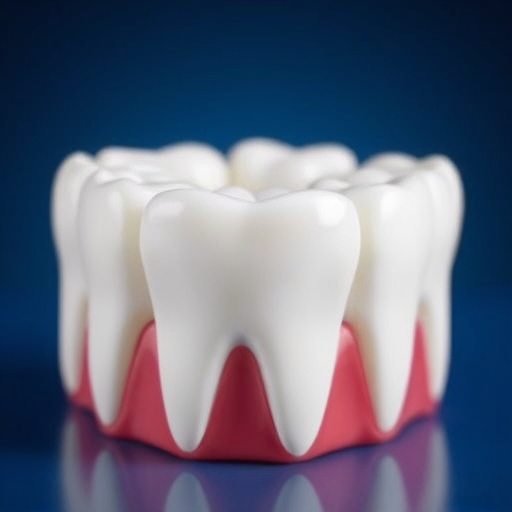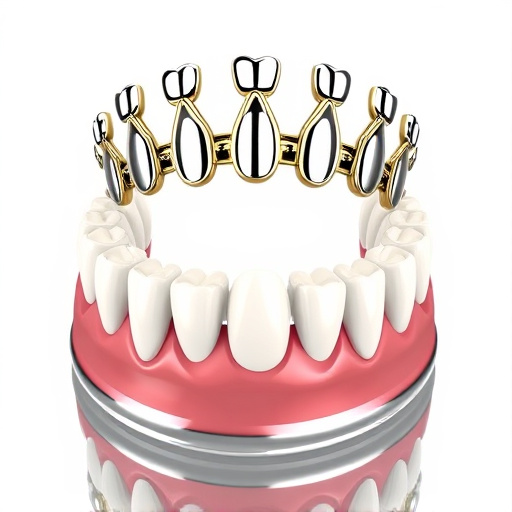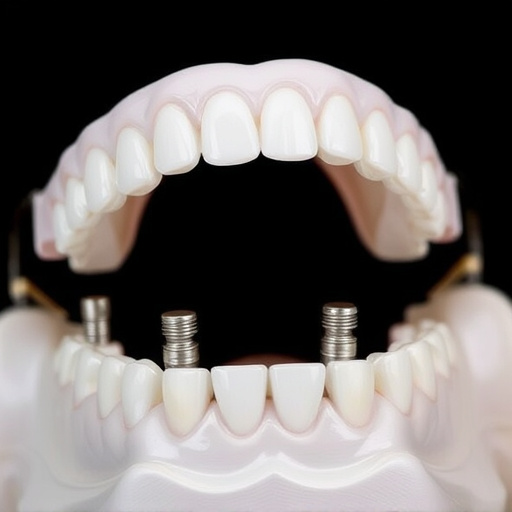Sleep apnea, disrupting breathing during sleep, poses significant cardiac risks including hypertension, irregular heart rhythms, and severe events. Effective sleep apnea treatment using CPAP therapy, dental appliances, or dentistry addresses these risks by ensuring uninterrupted breathing. Personalized care, involving healthcare professional consultation and routine oral examinations, is crucial for mitigating cardiovascular issues and promoting overall well-being.
Sleep apnea, a common yet often undiagnosed condition, silently impacts millions. This breathing disorder interrupts sleep, leading to potential heart-related complications. Understanding sleep apnea and its effects on cardiac health is paramount. In this article, we explore effective treatment options, focusing on how sleep apnea treatment can prevent serious cardiac events. Discover the life-saving benefits of addressing this condition head-on.
- Understanding Sleep Apnea and Its Impact on Heart Health
- Exploring Effective Sleep Apnea Treatment Options
- The Role of Sleep Apnea Treatment in Preventing Cardiac Events
Understanding Sleep Apnea and Its Impact on Heart Health
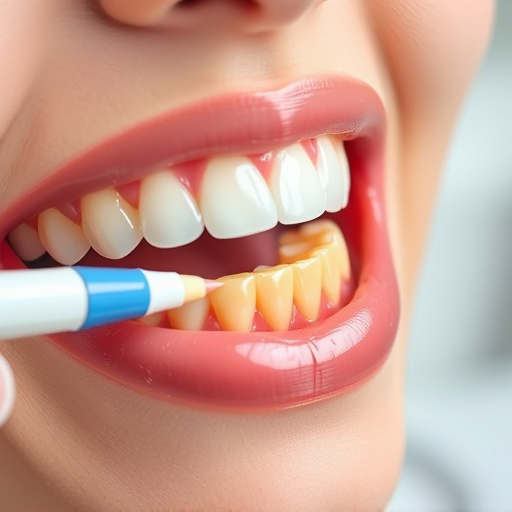
Sleep apnea is a common sleep disorder that affects millions worldwide. It occurs when the airways become blocked or narrowed during sleep, leading to intermittent pauses in breathing. These episodes can last for seconds or minutes and may repeat hundreds of times each night, causing fragmented and poor-quality sleep. Beyond its impact on daily functioning and overall quality of life, sleep apnea poses significant risks to heart health.
The condition places a strain on the cardiovascular system as the heart must work harder to pump blood during these episodes. Over time, this can contribute to elevated blood pressure, irregular heart rhythms, and increased inflammation—all risk factors for serious cardiac events like stroke, heart attack, and congestive heart failure. Effective sleep apnea treatment, such as continuous positive airway pressure (CPAP) therapy, dental appliances, or in some cases, restorative dentistry procedures including tooth extractions, can help mitigate these risks by promoting uninterrupted breathing during sleep, thereby safeguarding the health of the heart.
Exploring Effective Sleep Apnea Treatment Options
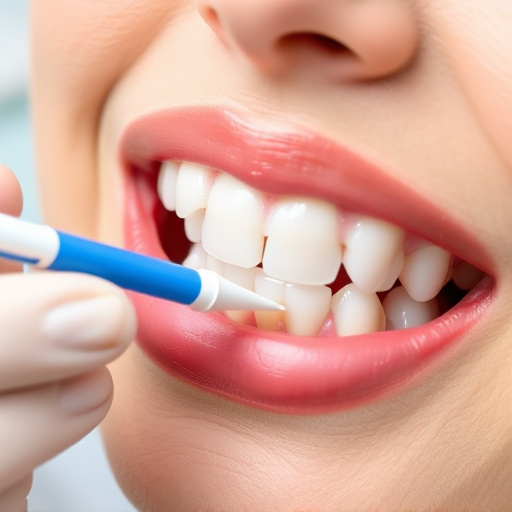
Exploring Effective Sleep Apnea Treatment Options
Sleep apnea is a condition characterized by pauses in breathing during sleep, leading to significant health risks, including cardiac events. Fortunately, various treatment options are available to manage and mitigate its effects. One common approach involves the use of continuous positive airway pressure (CPAP) machines, which help keep the airways open throughout the night. This simple yet effective method has been proven to reduce apnea episodes and improve overall sleep quality.
Beyond CPAP therapy, other treatment options include oral appliances that reposition the jaw to prevent the airway from collapsing, and in some cases, surgery may be recommended, such as wisdom tooth removal or dental procedures like bonding for supporting structures. Each person’s experience with sleep apnea is unique, so a personalized approach is crucial. Consulting with healthcare professionals ensures the best course of action, whether it involves lifestyle changes, dental interventions, or advanced therapies, ultimately aiming to restore uninterrupted sleep and protect cardiac health.
The Role of Sleep Apnea Treatment in Preventing Cardiac Events
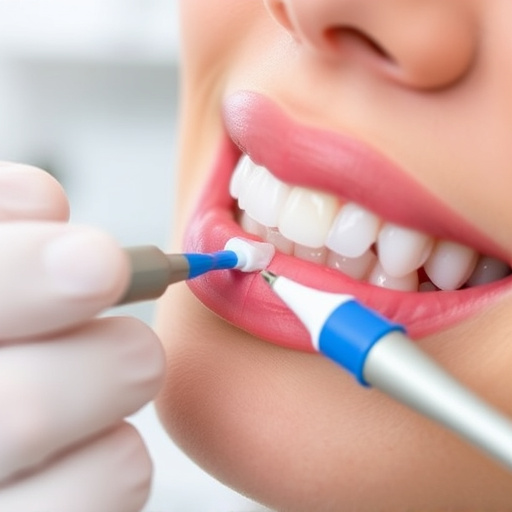
The role of sleep apnea treatment in preventing cardiac events cannot be overstated. Sleep apnea, a condition characterized by pauses in breathing during sleep, increases the risk of various cardiovascular issues. Left untreated, it can lead to hypertension, irregular heart rhythms, and even heart attacks or strokes. By addressing sleep apnea through specialized therapies, individuals can significantly reduce these risks. One effective approach involves wearing a continuous positive airway pressure (CPAP) mask during sleep, which keeps the airways open and ensures uninterrupted breathing.
Additionally, routine oral exams play a crucial role in managing sleep apnea. Dental professionals can identify potential issues like tooth misalignment or gum disease that may contribute to the condition. Procedures such as tooth repair or fitting dental crowns can help improve airflow and alleviate symptoms. Integrating these oral care practices into one’s overall sleep apnea treatment plan offers a holistic approach, enhancing the chances of preventing serious cardiac events and promoting better overall health.
Sleep apnea treatment isn’t just about improved sleep quality; it plays a pivotal role in preventing serious cardiac events. By exploring effective treatment options, individuals can significantly reduce risks associated with this condition. Prioritizing sleep apnea treatment not only enhances overall well-being but also contributes to a healthier heart and better long-term outcomes.








